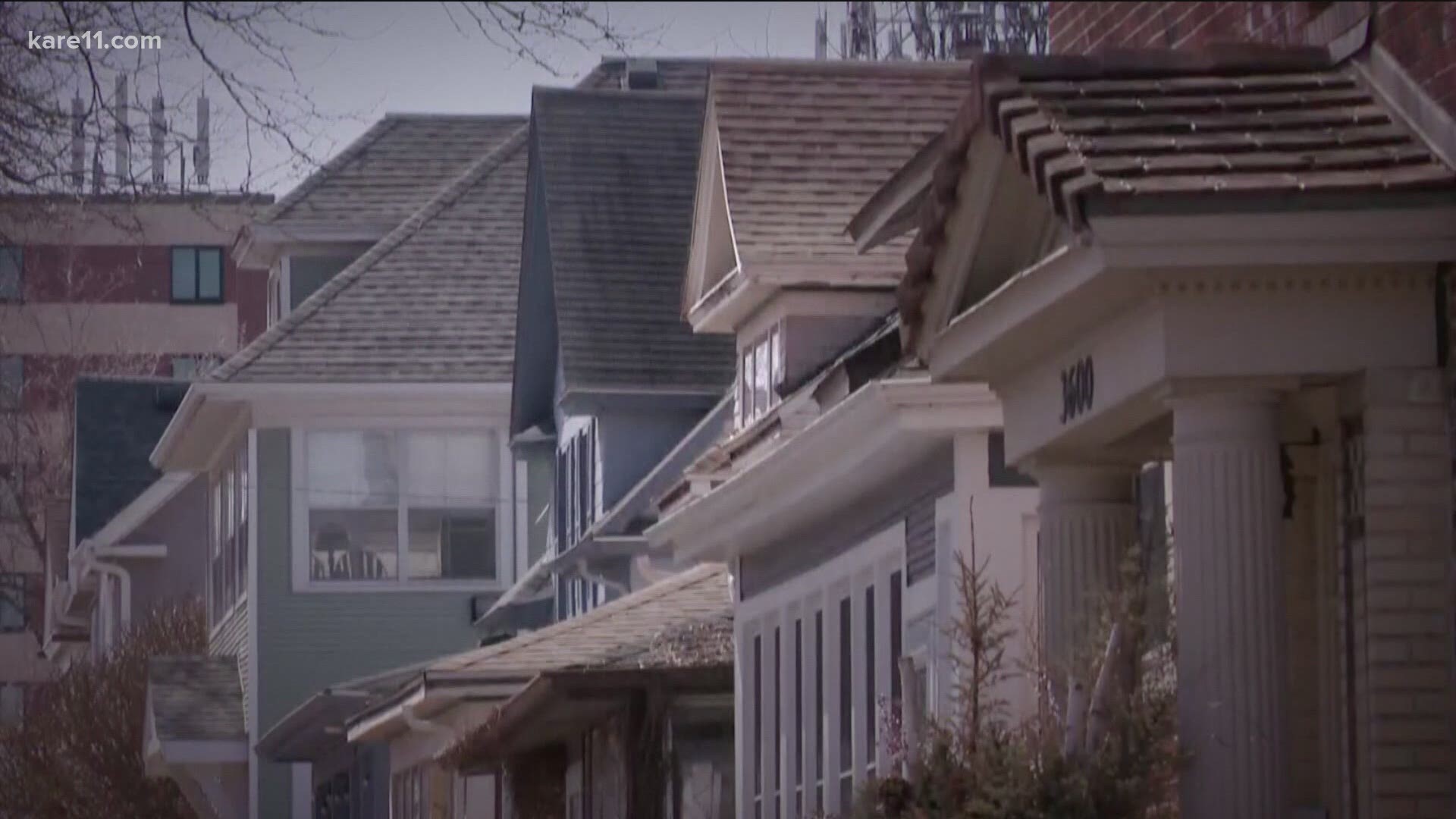MINNEAPOLIS — After buying a home in Golden Valley five years ago, Maria Cisneros made a stunning discovery.
"I found a racially restrictive covenant on our deed," Cisneros said.
Racially restrictive covenants were legal contracts embedded in property deeds for decades that prevented people who weren't white from buying or living in certain areas.
"My husband is Venezuelan, mixed-race Latino, and so are our children," Cisneros said. "And my husband's first question, being someone who's not from the United States, was is this still enforceable?"
As city attorney for Golden Valley, Cisneros knew that racial covenants were made illegal in the late 1960's, but she says the impact the discovery had on her was still profound.
"It's surprising and it's hurtful," she said. "I realized that if my family was a contemporary of my grandparents, we couldn't have lived in our neighborhood.
In the years since, Cisneros has connected with the University of Minnesota's Mapping Prejudice, which has developed an interactive website documenting the rise of racial covenants from 1910 through the 1950's.
Cisneros was impressed to see how Mapping Prejudice gave homeowners in Hennepin County a way to see if their homes were in areas where racial covenants were common, but she saw an opportunity for cities to also play a roll.
After the state of Minnesota made it possible for homeowners to discharge racial covenants in 2019, Cisneros worked with other city attorneys in Hennepin County to help homeowners navigate the process of finding covenants and discharging/disavowing them. Last year, several local realtor groups also volunteered to help.
"Our organizations played a role in creating this situation, and the segregation that exists in homeownership in the metro area today," Cisneros said. "We should work together to dismantle the legacy of that system that our organizations created."
It's an effort that real estate broker, Jamar Hardy, immediately gravitated to.
"I got into real estate because I cared about people that looked like myself, educating them on homeownership and how that can be a platform to build wealth," Hardy said. "But we really have communities that are super segregated and we just don't really have an honest conversation about that."
Hardy is chair of diversity and inclusion for Edina Realty and is now part of the Just Deeds Project, a website that connects homeowners with city and industry partners who can help them learn about and confront the history of housing segregation in their neighborhoods.
Jamar Hardy: "Just Deeds is taking the work that mapping for Prejudice Project did and taking it to another level so consumers, property owners, can actually have their voices heard around those restrictive covenants that lie in their deeds."
Kent Erdahl: "Do you think homeowners would be surprised at what they'd find?"
Hardy: "Homeowners are already surprised. Some of the people that are going through the experience just are like, 'Wow, we didn't know, and if we knew, maybe we wouldn't have purchased.'"
Erdahl: "So if a homeowner finds something like this in their deed. Do they have a course of action?"
Hardy: "It's a one page filing, which actually happens for free, saying, 'I reject (the racial covenant). I disavow it. I don't believe in this. I want my voice to be heard as a current property owner that I don't believe the way this was set up is right.'"
Erdahl: So why do that and not strike it from the record?"
Hardy: "This is a way for everybody to have their own experiences with it or their reckoning with it, and it not just be washed away like it never happened."
As someone who has experienced it herself, Maria says the process is simple and symbolic.
"It feels like you've taken some of the power back, and you've kind of staked your claim that that's no longer how it is here," she said. "It's also a movement that we're starting that's about more than just each individual home. It's about making that declaration together with your neighbors, with your community, with your elected officials that can help dismantle this legacy."

